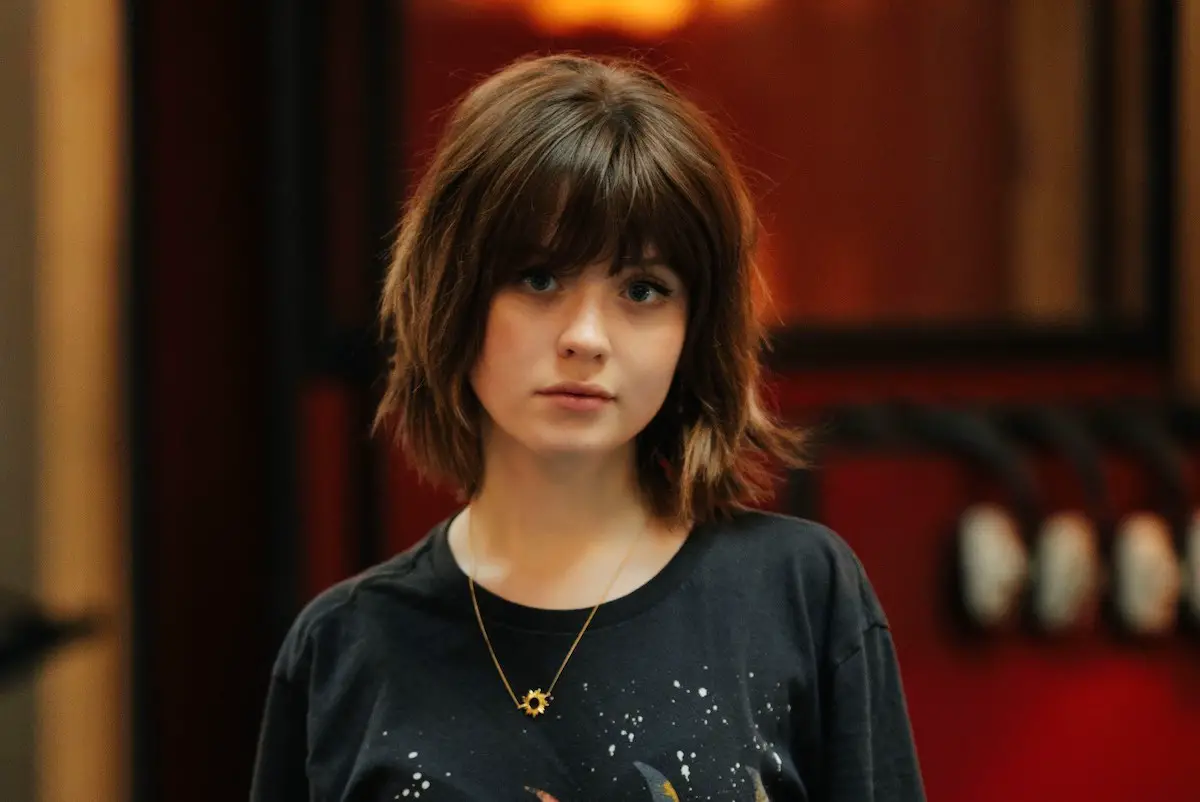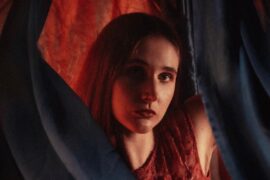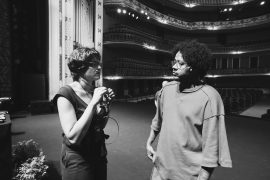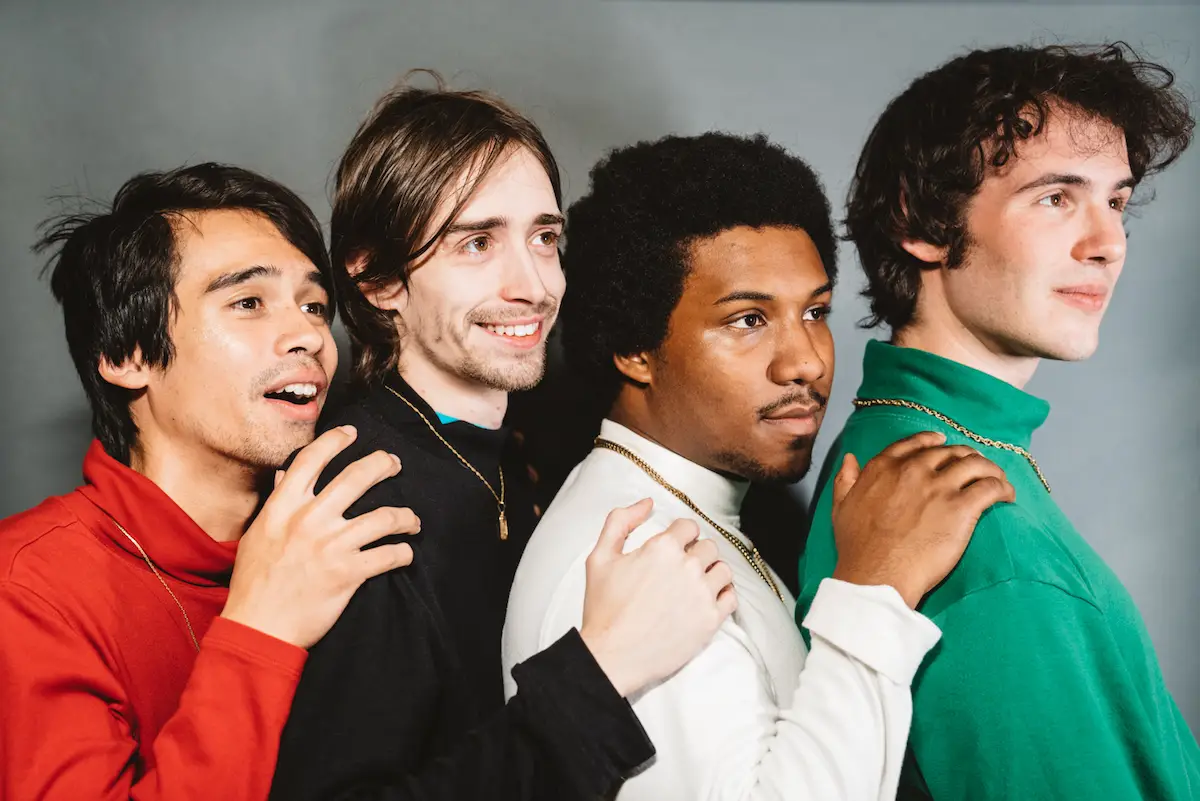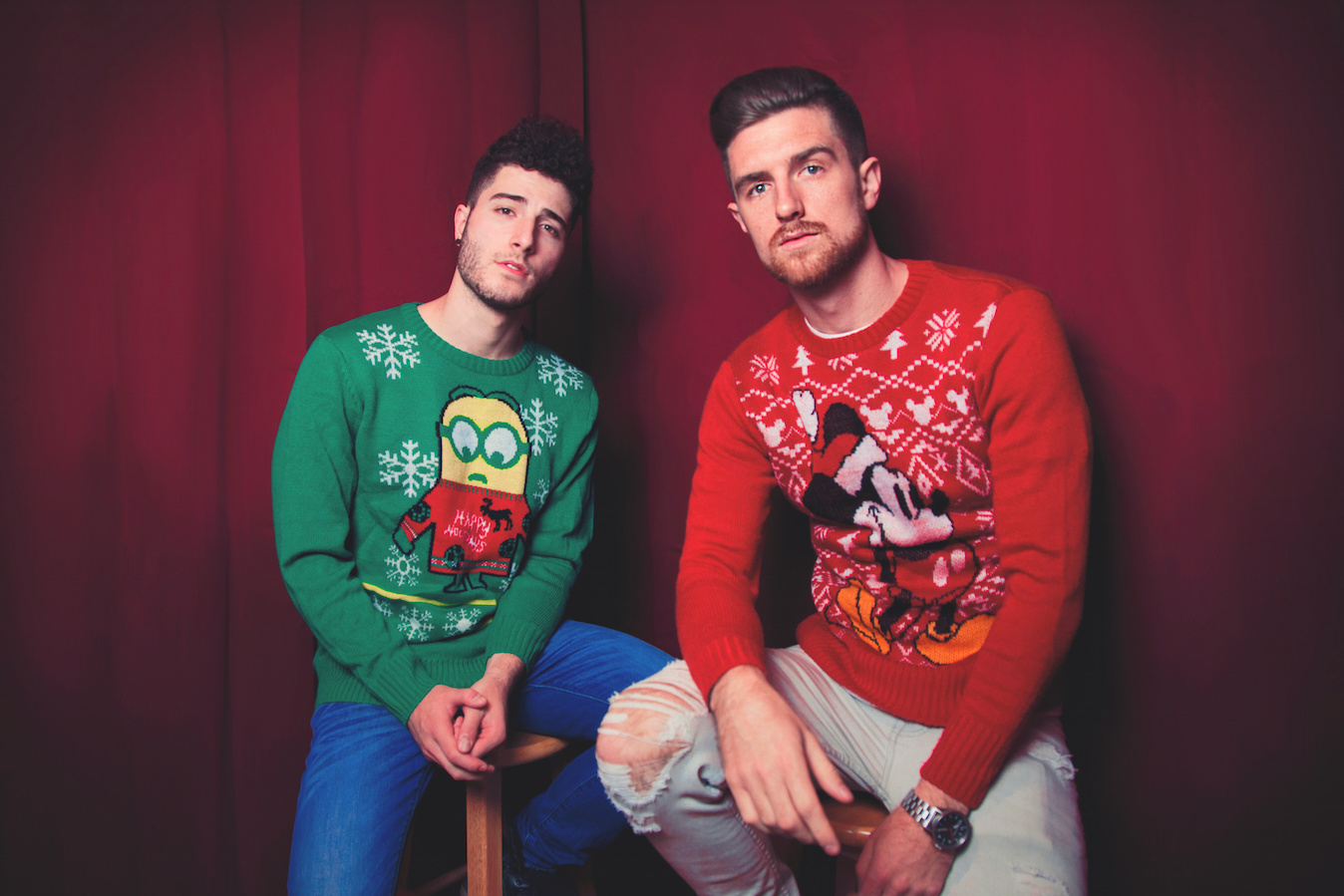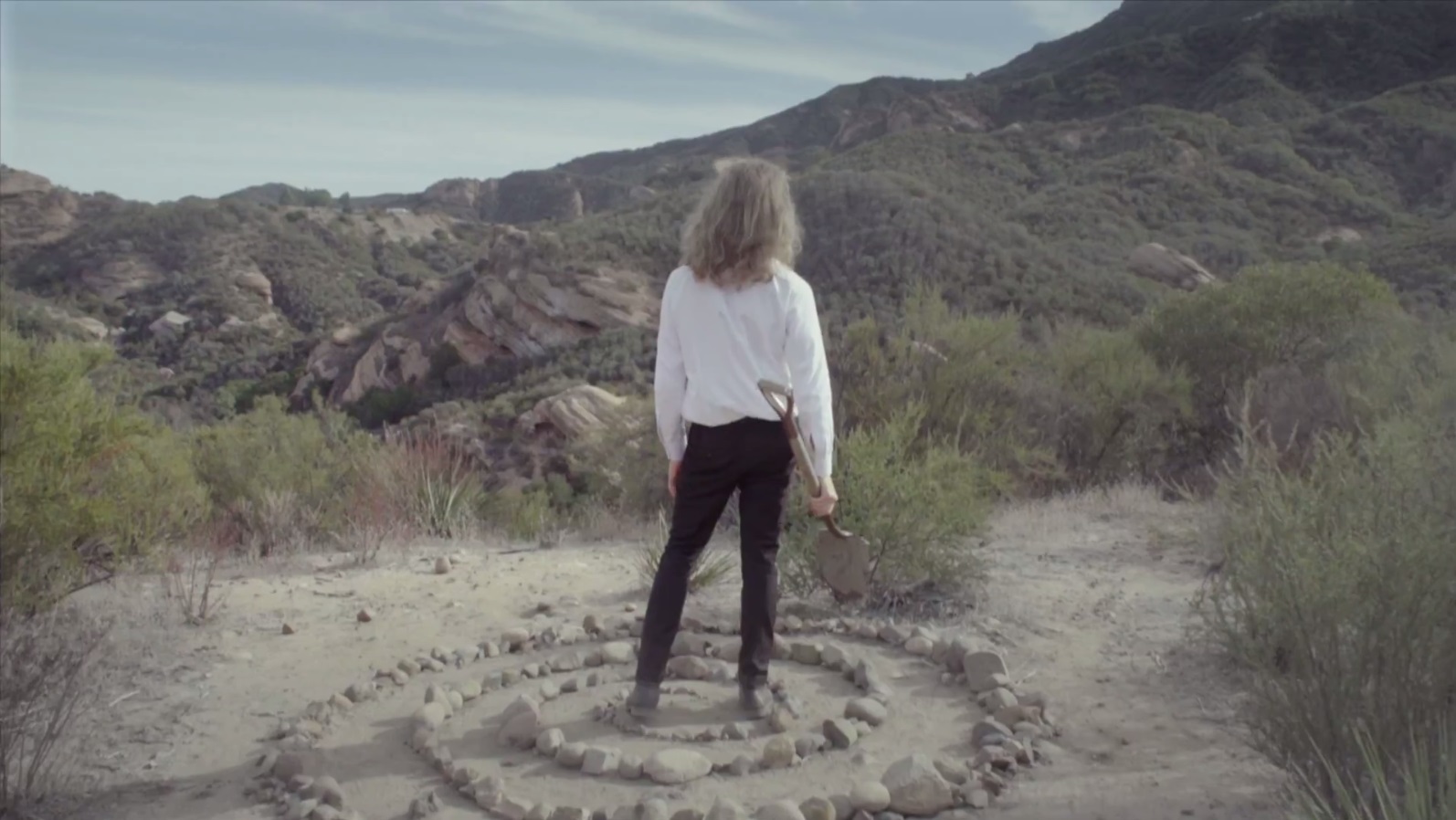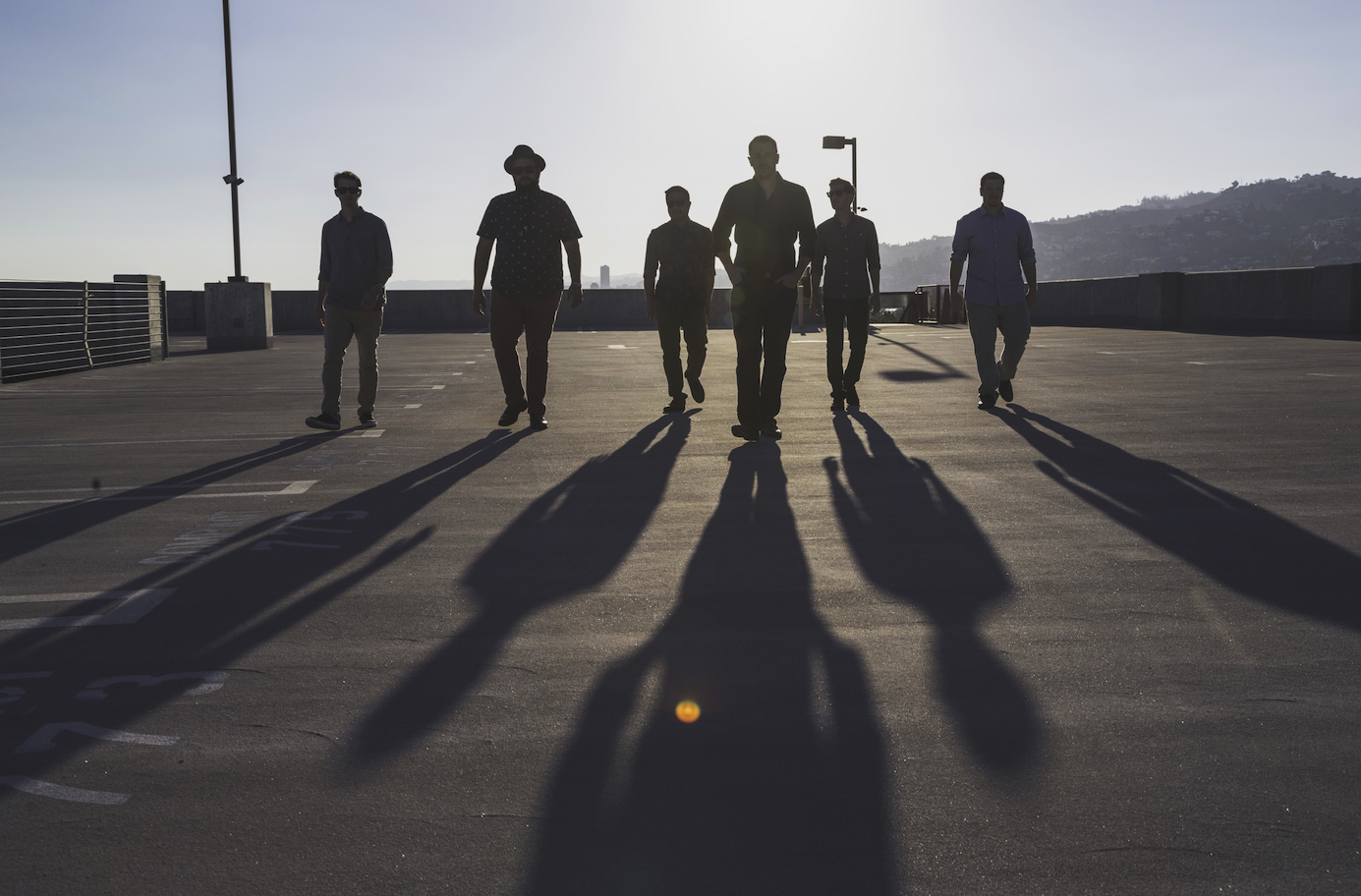The fiery singer-songwriter Donna Missal sits down with Atwood Magazine to discuss creating in quarantine and the cleansing relief of burning it all down.
‘Lighter’ – Donna Missal
We can walk through the fire because there’s something on the other side.
Atwood Magazine is an international publication. Often, we seek to take our readers out of time and place to experience music on its purest and most universal level, as art that binds us through shared experience. Indeed, we go through a lot together. Over the past four months, a global catastrophe has turned our world inside out. Almost everyone on Earth has been touched by the coronavirus outbreak in some way. Even so, the level by which we are affected varies drastically from person to person and place to place. Here in the US, it often seems like our ordeal has only begun.
For artists like Donna Missal, rounding the bend on four months of quarantine feels like a dark tunnel with no exit. Los Angeles, the city which we both call home, has shuttered its doors for the second time since mid-March, effectively resetting the clock. We’re stuck in our own Sisyphus nightmare, rolling our ball against wave after wave of infection. “Eventually you feel that fear and anxiety long enough that you’re going to reach a breaking point,” she admits. “You realize that you can’t function this way and you have to find somehow to work within these parameters to make you feel healthy, and like you’re still participating in life.” How did she cope? She released a record.

Lighter‘s content is not a product of quarantine, but both its message and rollout seem specifically tailored for this moment in time. Upon returning from tour, Missal lost a long-term relationship. “It caused me to spiral,” she confesses. “I got super depressed and spent the last year in this place like where I’d pretend to be okay most of the time.” But she’d bury that back on the road, putting on a happy face for fans and immersing herself in the demands of tour life. Therapy came when she finally sat down to write.
Though not all of us have recently felt the slap of a breakup, in many ways, we’re experiencing that same sensation of loss. Maybe we aren’t yearning for a specific person, but our lives as we knew them are only specters of what they once were. We grasp for a semblance of “normal” even though that “normal” may never exist again. Coming to terms with that is a gut-wrenching experience, but it is possible. And on Lighter, Donna Missal shows us how.

“At the time, it felt like everything in my life absolutely burning down and I was standing in the middle of it. And that’s a really fucking scary feeling. You can’t see past total destruction, you can’t see past flame, you can’t see past the smoke, you’re just like lost.”
But destruction isn’t a unilateral experience. On the other side of the coin comes possibility. It sometimes needs to happen, even when the prospect is terrifying and we desperately cling to what’s familiar or comforting. “I think I really got to that point where that was absolutely necessary for me to be able to get beyond something,” she elaborates. “It had to be totally destroyed. I really think that there is something powerful in recognizing that and embracing it.” With our lighter, we can raze all that isn’t serving us and make way for new growth. Controlled burns are used to usher in new life.
“At some point, while writing these songs, it felt like a switch flipped where I suddenly started embracing the idea that everything is gone,” she says. “But also I thought, what does that mean now? What’s on the other side of that? It’s possibility. It’s freedom. It’s autonomy. It’s something brand new. And there’s something really exciting about that.”
Right now, our lives feel overgrown with the stagnant muck of quarantine. Maybe we’re trapped in our routine or by the expectation that our lives should look a particular way. The more we fight it or cling to it, the deeper we sink. Through Lighter, Missal shows us another path, one in which fire is both catharsis and renewal.
How does it feel?
Yeah, yeah
When the dark descends
And your heart beats for real?

She comes swinging out of the gate, embracing the darkness through swirling strings on “How Does It Feel.” The answer to all her questions, generously, is “not good.” And that’s okay. Approaching these emotions with genuine curiosity and without judgment is how we begin to traverse our way through them. We recognize the chaos and uncertainty that tears into us and realize that the first step is acceptance. Then comes the fire.
Lighter isn’t an easy listen, but it often feels essential, like a therapy session that shines a light on buried trauma. Missal’s lyrics are fiercely confessional and yet seem mined from the collective hardship of quarantine. Perhaps that speaks best to our shared humanity. Though our experiences are our own, common threads bind us to one another even when we’re forced to stay apart.
“Carefully” leans on dissonant piano chords like heartstrings wrenched out of tune. “Slow Motion” draws laser-focus on the fleeting moments we wish would stay for just a second longer (that the song ends at all is a testament to the impermanence that it fights against). It’s a bleary-eyed, mascara-stained album – messy, raw, and utterly genius. Coming out the other side feels like emerging from burned-out ruins yet simultaneously, cleansing. Her final sentiment may be that she’s not ready for what’s next (as “I’m Not Ready” telegraphs), but neither are we. It still happens nonetheless.
One more distraction to keep me from
Laying in the wake of my own destruction
And I wanted to believe that I’m better
But I’m not.
So how do we become better? How do we make sense of this perpetual stasis that’s locked many of us in place? How do we cope with the realization that some won’t even make it to the other side?
“There’s such an emphasis in our culture, at least in the US, of hustle hard, do your job, be productive, be proactive, make money. Once all of that is stripped away from your life, what’s left? Do you know what you’re about?” she posits. “I think it’s actually really fucking important that we all have an opportunity to rediscover why we exist. And it isn’t about getting to the top of some invisible, imaginary, made-up bullshit ladder. There’s so much purpose in just knowing who you are what you’re about, experiencing things in a visceral way, and acknowledging and making space for that.” Once we burn it all down, we can rediscover ourselves.
There is a lot of music coming out now. The live show is still a memory of a dream, but artists like Missal have still lowered their lifelines. They’ve given us an opportunity to enter worlds outside our grim realities or probe deeper into our feelings and unearth what we’ve been avoiding. Life looks different, but it’s still – well – life. We’re still living, breathing, feeling human beings even when we forget that.
“I think that we often don’t have a lot of time to really let that sink in. And it seems like at least right now if there’s anything that can come from this, I hope that it can be that we do finally have the time to be curious about those things within ourselves. We can walk through the fire because there’s something on the other side.”
It doesn’t always feel that way, but there is another side. Sometimes it just takes a lighter to find it, either burning what blocks us or lighting the way.
I talked at length with Donna Missal about her new album, about coming to terms with loss and about the cathartic power of fire. Check out our conversation below:

A CONVERSATION WITH DONNA MISSAL

Atwood Magazine: I know that quarantine time plays tricks on us. The lack of structure can mess with your perception of time. How have the past four months looked for you?
Donna Missal: Well, I was on tour prior to quarantine, opening a couple of arenas in Germany and the UK. It was my first time in spaces that big. By the end, they started closing the borders from the UK and Europe into the US, so I had to leave early to make it home safely. It was a really disorienting experience. You go from being surrounded by people, this steady work environment, and these venues with more people than I’ve seen in one place in my life, to a juxtaposition of arriving home really suddenly without preparation or notice and going directly into quarantine. I’ve been home ever since.
It’s been equal parts fears and anxiety. The concept of the unknown is the scariest thing, not knowing what to expect, not knowing what’s going to happen. And meanwhile, I’ve been preparing to put out this record. All of the resources and the normal channels for how you would promote something like this all changed so dramatically in these last four months. It’s been this amalgamation of relearning everything and reframing every intention that I had for this record as well as for my life, music, and career.
I think that, eventually, you feel that fear and that anxiety long enough that you’re going to reach a breaking point where you realize that you can’t function this way and you have to find a way to work within these parameters to make you feel healthy, and like you’re still participating in life. I don’t think that it’s about necessarily accomplishing things and being super productive, but more so just about accepting the environment that you’re in.
Because I was putting out a record, I found myself reframing my own goals. I’ve never had so much autonomy with my work before. I’ve always been very collaborative in everything that I make. So I’m now editing my own videos and I’m making things in my home, things that I don’t think that I would have experienced if the circumstances were not what they are.
If I weren’t part of putting out a record, I think that the time would be spent very, very differently. It ended up giving me a real sense of purpose at the end of the day. I’m really grateful for it. But I don’t think I would have been able to prepare for the past four months except to just be thrown into it. I think everybody’s kind of feeling that way.
Let’s talk a little bit about the record. How did Lighter first start coming together?
Donna Missal: Well, I’ve been touring over the last couple of years and in between tours, I’d come home and start working on songs. I started to take some sessions with some other writers, but I wasn’t really sure what the goal was apart from exercising my writing muscles and keeping myself engaged with the creative process.
Then, I came home from one tour and experienced this really transformative, fucked up life change. I lost a relationship that was very important to me in a way that was really traumatic and scary. It caused me to spiral. I got super depressed and spent the last year in this place like where I’d pretend to be okay most of the time.
It felt so dichotomous because I was touring and working a lot. When you’re performing or promoting, it almost feels like a necessary coping mechanism to be really positive and to do your job well and to be focused. I was putting on a happy face and doing my best to interact with fans and not reveal the place that I was in mentally and emotionally. I really threw all of that into writing. When I wasn’t performing, I was spending all my time writing by myself.
My past method of coming into session like, “Let’s all come up with something from scratch here together” really changed with this record. I came into the room like, “Hey, this is what I need to say. This is what this is what’s on my mind. I can’t stop thinking about it. This is what I need to talk about. This is what I’m feeling.” And I found people who were down to help me bring those ideas to fruition.
After a few months of writing, I started to see the songs existing on one project together. And it started to really feel and sound like it could be an album. It was a record born of a very real and immediate experience.

What about the name? What’s the significance there?
Donna Missal: I’ve always been the type of artist that makes albums. I love bodies of work. So I wanted to give it a name to start building a foundation.
I named it Lighter because – and I don’t know if you experience this as a writer yourself – sometimes things just come up. You’ll just be like, “Where did that come from?” Then it starts showing itself in all these different ways. You’re thinking about this one thought, phrase, word, or idea, and it’s not even a conscious desire to go there. It just happens. I think that indicates something. In my case, this word “lighter” just wouldn’t leave me alone. It was constantly in the back of my mind.
At the time, it felt like everything in my life was absolutely burning down and I was standing in the middle of it. That’s a really fucking scary feeling. You can’t see past total destruction, you can’t see past flame, you can’t see past the smoke, you’re just like lost. I think that concept is how it stuck. It felt like it made sense. It’s literally lighting shit up.
I like what you said about fire and destruction and I think “burn it all down” can be such a cathartic mantra, this idea that you're razing all the BS that isn't serving you. But the flip side of that is that when you do, you're making room for something to grow in its place. What do you hope to grow from your work on this album?
Donna Missal: That concept really ended up revealing itself through this process. This is not a one-sided thing. Destruction also means new possibilities, and it’s sometimes what needs to happen, even if it feels scary or like the wrong thing. Without it, you can’t recreate. And I think I really got to the point where it was absolutely necessary for me to get beyond something. It had to be totally destroyed. I really think that there is something powerful in recognizing that and embracing it.
At some point, while writing these songs, it felt like a switch flipped where I suddenly started embracing the idea that everything is gone. But also I thought, what does that mean now? What’s on the other side of that? It’s possibility. It’s freedom. It’s autonomy. It’s something brand new. And there’s something really exciting about that. I hope that this record identifies that and gives respect to that process. I don’t want anyone to be afraid of pain and feeling that change in a way that is so scary and vulnerable.
In my vulnerability making this record, I actually found myself to be the strongest that I had ever been. And there’s something really transformative about that. I’m really grateful to have learned that lesson through writing this album. And I hope that anyone who listens can also come to that realization.
It's kind of perfect that this album came out right when it did. Everything is so uncertain right now and making room for possibilities can sometimes seem scary when we don't know when all of this is going to end. Do you think that there's a way that you as an artist can help fans and listeners through all that?
Donna Missal: I hope so. I don’t really know what my purpose is otherwise. And I think that there’s something that we’re all collectively feeling, a sense of purposelessness. There’s such an emphasis in our culture, at least in the US, of hustle hard, do your job, be productive, be proactive, make money. Once all of that is stripped away from your life, what’s left? Do you know what you’re about? I think it’s actually really fucking exciting and important that we all have an opportunity to rediscover why we exist. And it isn’t about getting to the top of some invisible, imaginary, made-up bullshit ladder. There’s so much purpose in just knowing who you are what you’re about, experiencing things in a visceral way, and acknowledging and making space for that.
It’s an important time for any music to be coming out so that people can live those thoughts and feelings and experiences through their favorite artists. I mean, I know that my experience with music, in particular, is that it dictates culture. It’s a direct reference to the way that human beings interact with each other, with ourselves, and with the world around us. I am really grateful that we’re experiencing this time together and that it’s allowing people to spend more time with those thoughts with those feelings, giving them more merit in their own lives.
Watch: “Hurt By You” – Donna Missal
I want to talk just a little bit about my favorite song on the record, which is “Hurt By You.” You have this line in there that goes, “I'm in love with what we were, but not with you.” I think says something pretty profound about the ways we experience loss. Do you feel like there's this disconnect between what we want and what's real? And if so, is there a way we can reconcile that?
Donna Missal: I think we finally have time to sit with these ideas in a way where we realize our lifestyles weren’t conducive to living mindfully. I’ve worked on this in therapy a lot over the last year, which has been incredibly helpful in my life, sort of coming back to myself and rediscovering who I am. Recently I’ve been encouraged to ask myself questions and be curious about my feelings, like ask myself, “Why do you think you’re feeling that way? Why do you think you have that thought? Why do you think you made that decision?” And not with judgment, but with genuine curiosity, so that you can come to conclusions that you wouldn’t have come to before. Things just click.
With [“Hurt By You”] in particular, that concept was such a huge breakthrough for me. I was holding onto something that was not what it really was. And it kept me stuck for a really long time. Once I finally got to the point where I questioned myself enough, I could recognize, “Oh, I’m not holding onto and crying over and obsessed with something real. I’ve been fixated on what I wanted it to be.” That allowed me to let it go. I’m really grateful that I learned how to do that. And it’s not something you just suddenly pick up and you’re great at. It’s something you work at and think about consciously. But it really helped free up a lot of space in my heart and in my life.
I think that we often don’t have a lot of time to really let that sink in. And it seems like at least right now if there’s anything that can come from this, I hope that it can be that we do finally have the time to be curious about those things within ourselves. We can walk through the fire because there’s something on the other side.
I like what you said about approaching things with curiosity and without judgment. It really allows you to see your emotions with more clarity.
Donna Missal: Exactly.
So, eyes to the future. The album is out now. What is up next for you? And I know it might be hard to pinpoint because we're still under quarantine.
Donna Missal: Well, I’ve got a rehearsal today. My band members, my crew, and I all got our COVID test and we’re good to go. So we’re going to rehearse today for some virtual reality and online performing. Aside from that, I’ll continue to have interactive experiences with fans in any way possible.
While it isn’t possible to see people in person, I’m definitely planning to tour. It’s looking like early next year, and I’m really excited by that prospect. I’ll be really focused until then trying to like plan a really special tour, something that I wouldn’t have had all of the time in the past to put together.
I think I think I’m just as curious as so many others about what the future holds, especially for the industry that I’m in. I definitely struggle with the fear of not knowing when it will be possible to see people in person again. Playing live shows is really risky right now, and it’s been pretty heartbreaking. But I’m hopeful that in the absence of it, that means there’s space, right? There’s got to be an opportunity for something new and interesting to happen. I’m very curious what that could be. I’m definitely open and ready.
But until I can be with people again, I’m just going to keep doing everything that I can to connect and help this record be heard. I think that this time has really taught me something really valuable, which is to acknowledge why I make music. At the end of the day, it’s because I love music. I use it to connect with others in this way that I don’t think anything else does. These songs are so personal to me and they’re so directly from me. I hope that it creates an even stronger connective thread between myself and anyone.

I hear you used to be a bartender. I happen to run Atwood Magazine’s podcast Tunes & Tumblers, which is all about pairing music with cocktail recipes. Using your expertise, is there a drink you think encapsulates your sound?
Donna Missal: Well, I’m sober, but I used to have a lot of fun lighting alcohol on fire. Straight whiskey in a glass with a lighter poured across the bar. That feels a lot like this album to me.
What are three songs of yours that would be great on a quarantine playlist?
Donna Missal: The music I’ve been gravitating towards in quarantine is on very extreme sides of the spectrum. On one side, it’s something that will really put me in my feelings, that fucking deep well of sadness. For that, I would probably put on my song “Slow Motion.” On the other side, you need something that will pull you out of that feeling forcefully. So I would say “How Does It Feel?” To me, it feels like an explosion of energy and possibility. If you could encapsulate the feeling of wonder in music, that’s what I was hoping to do with that track.
Then, for a third song, I think it’s also really fun to put music on to just do a kitchen concert to, rock the fuck out do while you’re doing something really mundane like cleaning your house or cooking dinner. All these things that maybe we weren’t really paying attention to before quarantine. So, I would probably put “Just Like You” on there. It’s a really fun rock-pop moment that you can play air guitar to while you’re like making yourself food or cleaning your room.
— —

Connect to Donna Missal on
Facebook, Twitter, Instagram
Discover new music on Atwood Magazine
© Erica Hernandez
:: Stream Donna Missal ::

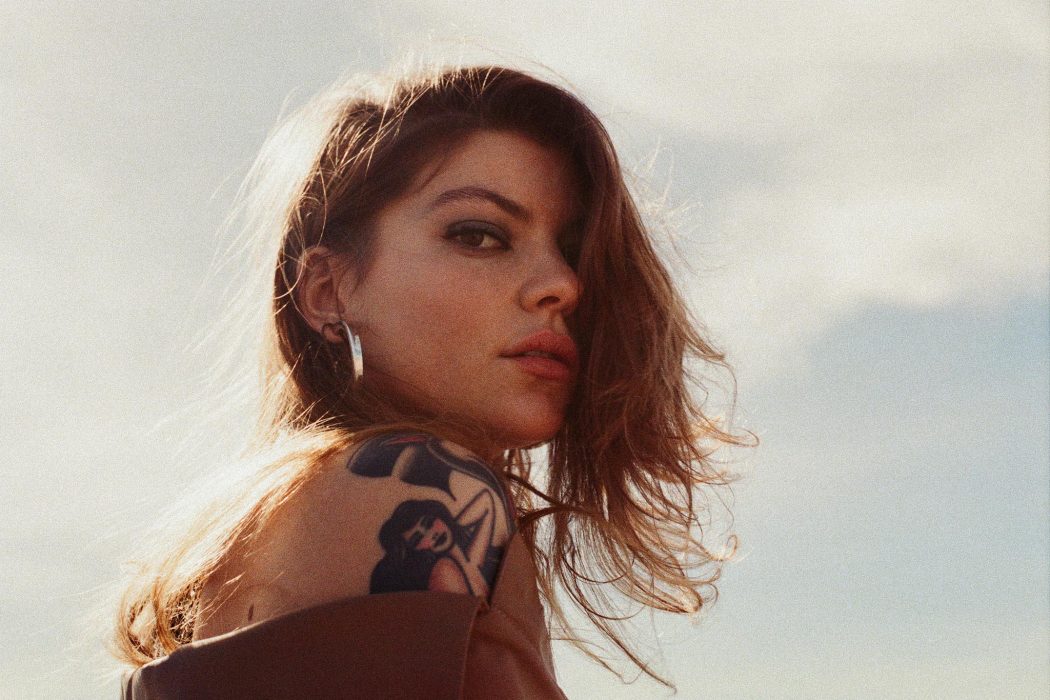
 © Erica Hernandez
© Erica Hernandez